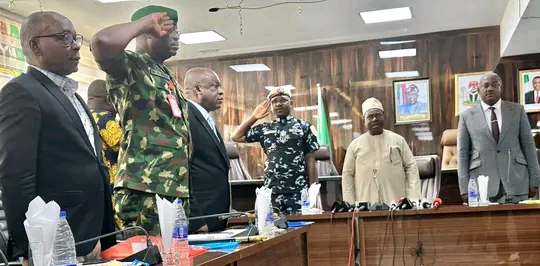INEC Charges Reps on Law to Prohibit Possession of Huge Of Money during Elections

The Independent National Electoral Commission (INEC) has urged the National Assembly to enact laws prohibiting certain acts, including the possession of large sums of money within polling areas, to curb vote buying and selling. Speaking at a consultative meeting with security operatives and the technical committee on electoral law amendments organized by the Joint Senate and House Committees on Electoral Matters in collaboration with PLAC and FCDO in Abuja, INEC representatives noted that politicians often justify carrying large amounts of cash by citing party agent payments and logistical expenses.
INEC’s Director of Litigation and Prosecution, Tanimu Muhammed San, suggested a limit of ₦50,000, while Ondo Resident Electoral Commissioner, Oluwatoyin Babalola, proposed ₦3,000.On electoral offenses, INEC officials stated that the commission currently lacks the capacity to prosecute such crimes effectively. They reiterated previous calls for an Electoral Offenses Commission but affirmed that, for now, INEC is doing its best to handle prosecutions.
Meanwhile, the Commissioner of Police in charge of election planning and evaluation, representing the Inspector General of Police, Abayomi Shogunle, highlighted logistics as a major challenge for law enforcement during elections and called for better support in this area. The Chairman of the House Committee on Electoral Matters Hon Adebayo Balogun assured that all concerns raised would be addressed, emphasizing the need for awareness programs involving political parties, INEC, and civil society organizations.
He also announced plans for a 2025 Electoral Act, replacing the 2022 version, to improve public understanding of electoral laws. In his opening remarks, he stressed the importance of maintaining peace and order before, during, and after elections, highlighting the role of security agencies in ensuring a violence-free electoral process. The Senate Chairman on Electoral Matters acknowledged that while the 2022 Electoral Act was initially considered comprehensive, its implementation during the 2023 elections revealed gaps that need to be addressed.




